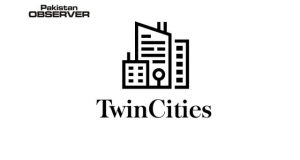The existing mistrust between Afghanistan and Pakistan has largely resulted from the years-long distortion of facts that were influenced by politically motivated agendas.
The need is now to project commonalities by identifying lacunas from the shared history of the two nations; and this can be done by the academia and civil society taking the lead, setting aside all fictions and fabrications, and shaping up a joint-narrative that is based on facts and ground realities, all aimed at ensuring peaceful coexistence and strengthening bilateral ties.
The exigency was stressed at a roundtable titled ‘Afghan Historiography: A hybrid threat to Pakistan’, which was held at Institute of Policy Studies (IPS), Islamabad. The session was addressed as keynote speaker by Dr Farhat Taj, associate professor from the University of Tromso, Norway, chaired by IPS’ Vice Chairman Ambassador (r) Syed Abrar Hussain and participated as discussants by IPS’ Chairman Khalid Rahman, Akhunzada Chattan, a former parliamentarian, Brigadier (retd) Said Nazir, strategic affairs expert, Juma Khan Sufi, a renowned author and Afghan affairs expert, Dr Anwar-ul-Hassan Gilani, vice chancellor, University of Haripur, and Naufil Shahrukh, GM operations at IPS.
Commenting over the hybrid threats emanating from Afghanistan, Dr Taj underscored the role that the research institutions and academia from Afghanistan and Pakistan can play by carrying out genuine research sans any political or other kind of duress, to develop a narrative that is based only on historical facts. She stressed that the distortion of facts by presenting fables has rather widened the gulf of distrust between the two neighborly countries.
The speaker, for instance, observed that the Durand line issue, which was a settled matter in light of historical evidences, was deeply inculcated into the false consciousness of Afghan people by their governments to achieve vested interests – a truth that needs to be popularized and brought into discussion by the academia so that the government, politicians, intelligentsia and other stakeholders and sensitized and apprised about it.
Speaking of the efforts Pakistan has made to address this wariness, Ambassador Abrar was of the view that the country has facilitated and accommodated thousands of Afghan students who have come to Pakistan over the years for higher education due to the prolonged instability in their country. He also highlighted the importance of the Pashto language in counter narrative building in response to fiction being presented as history by anti-state elements.
Other speakers also felt the need for highlighting the fact that putting the disputed matters on the back burner in the hope of resolving it would not fetch desired results. Rather, a proactive approach towards clearing the air surrounding disputed historical matters between the two countries as well as the factual reporting of the historical events was seen as need of the hour.









